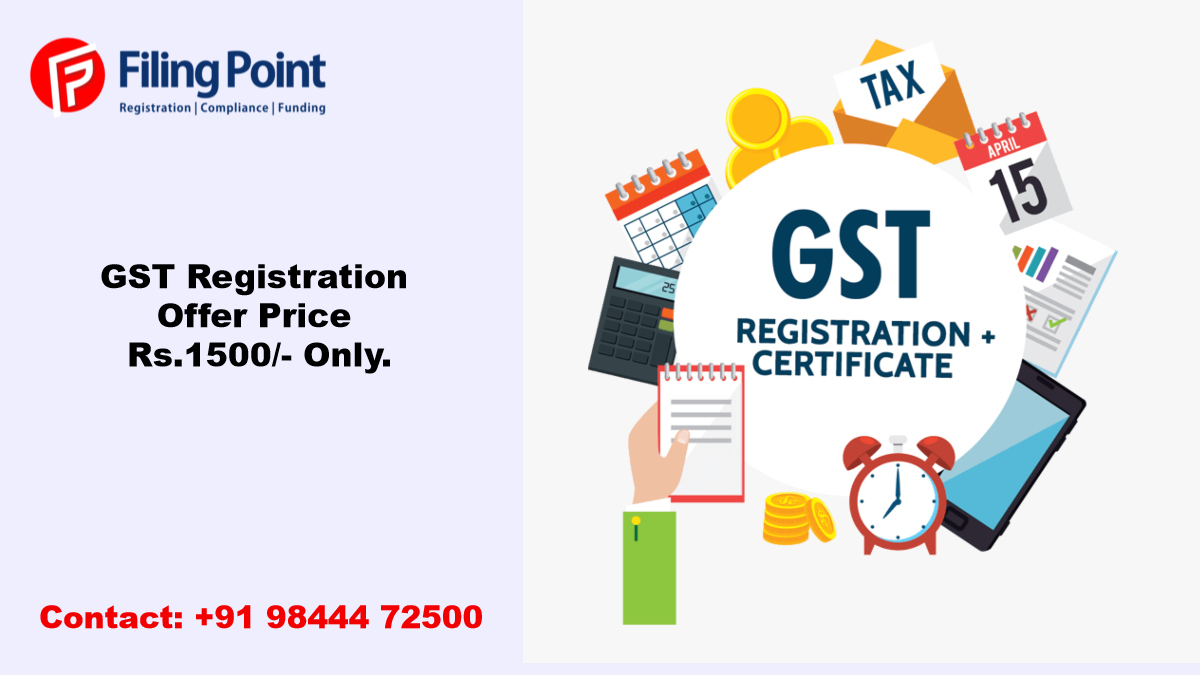Choosing CFO Account & Services for GST Registration in Singapore: What You Required to Know
Choosing CFO Account & Services for GST Registration in Singapore: What You Required to Know
Blog Article
From Beginning To End: A Detailed Overview of GST Enrollment and Exactly How to Efficiently Register Your Service
Browsing with the detailed procedure of GST enrollment can be a critical step for any kind of company aiming to establish compliance and authenticity in the market. Why choose CFO Account & Services for GST registration in Singapore. From understanding the essential concepts of GST to satisfying the qualification criteria and collecting the needed documentation, the journey in the direction of successful registration can frequently feel like an overwhelming task. Nevertheless, with the right assistance and understandings, companies can simplify this process and unlock the benefits that include being a signed up entity.
Recognizing GST and Its Importance
Understanding the Goods and Provider Tax (GST) and its significance is important for businesses running in economic situations where this tax system is executed. By allowing businesses to assert input tax debts on the tax paid on purchases, GST ensures that tax obligations are determined only on the worth included at each phase of the supply chain.
Additionally, GST promotes conformity and transparency in the tax obligation regime, reducing tax obligation evasion and boosting federal government revenue. It streamlines tax obligation administration and conformity for companies by giving a common system for tax declaring and payment. On the whole, a thorough understanding of GST is important for companies to properly navigate the intricacies of the tax obligation system and ensure conformity with the law.
Qualification Criteria for GST Registration
To sign up for GST, organizations must meet specific qualification standards laid out by the tax obligation authorities. The key need for GST enrollment is that the business's aggregate turnover exceeds the limit established by the federal government, which differs by state. In addition, particular services, such as those included in inter-state supply of services or items, casual taxed individuals, and non-resident taxed persons, are called for to sign up for GST regardless of their turnover.
Furthermore, services associated with providing products or solutions via shopping systems are also mandated to sign up for GST, regardless of their turnover. Organizations that were signed up under the previous tax regimen, such as Barrel, excise duty, or solution tax, should shift their registration to GST. Adhering to these qualification standards is vital for companies looking for to adhere to the GST laws and prevent any charges for non-compliance.
Files Required for GST Registration
When using for GST registration, services must guarantee they have all the necessary records in order to complete the procedure smoothly and effectively. The key documents needed for GST enrollment include evidence of company registration or incorporation such as the Certificate of Unification, partnership action, or enrollment certificate. In addition, organizations need to offer proof of address for the primary workplace, which can be supported by papers like an energy expense or a rental arrangement.
Additionally, records verifying the identity and address of the companions or marketers involved in the service, such as frying pan card, Aadhaar card, or key, are essential for GST registration. Financial institution account declarations or terminated cheques displaying the name of the service, address, and account number are also necessary to validate the bank account details offered during registration.
Making certain all the necessary documents are in order and readily offered will certainly simplify the GST registration process and help services avoid delays or issues.
Online Registration Refine for GST

After finishing the type, supporting documents require to be uploaded based on the guidelines given. These papers normally include evidence of company enrollment, address proof, financial institution statements, and identity proof of business proprietor. It is important to make certain that all files are clear, legitimate, and submitted in the defined format to stay clear of delays in the registration process.
As soon as the application and files are sent, services can track the standing of their GST registration online. If there are no concerns or additional info required, the GST registration certification will certainly be issued online, noting the successful conclusion of the on-line registration procedure.
Post-Registration Compliance and Tips

Additionally, companies should preserve correct books of accounts, including invoices, accounting records, and financial statements, to sustain the information provided in GST returns. Regular audits and reconciliations should be conducted to ensure data precision and conformity with GST regulations. Organizations need to remain updated on any changes in GST laws, rates, or compliance treatments to make essential modifications quickly. Seeking specialist help from tax obligation specialists or accountants can additionally assist companies navigate complex GST compliance requirements effectively. By remaining vigilant and aggressive in post-registration compliance, organizations can prevent penalties, keep great standing with tax obligation authorities, and foster functional efficiency.
Final Thought
Finally, the procedure of GST registration is essential for services to comply with tax regulations this page and operate legally. By comprehending the eligibility requirements, collecting the necessary papers, and completing the online registration procedure, organizations can successfully register for GST. It is very important to stay certified with post-registration requirements and seek expert support when required to ensure smooth operations.
Companies that were registered under the previous tax obligation regimen, such as Barrel, import tax duty, or service tax obligation, need to change their enrollment to GST. The vital documents required for GST registration include proof of service enrollment or consolidation such as the Certification of Consolidation, collaboration act, or registration certification.Upon effective completion of the GST enrollment procedure, organizations need to immediately adhere to post-registration conformity needs to maintain governing conformity and make sure smooth operations.In verdict, the process of GST registration pop over here is important for companies to comply with tax obligation policies and operate legally. By understanding the eligibility standards, collecting the required papers, and completing the on-line enrollment procedure, companies can effectively register for GST.
Report this page